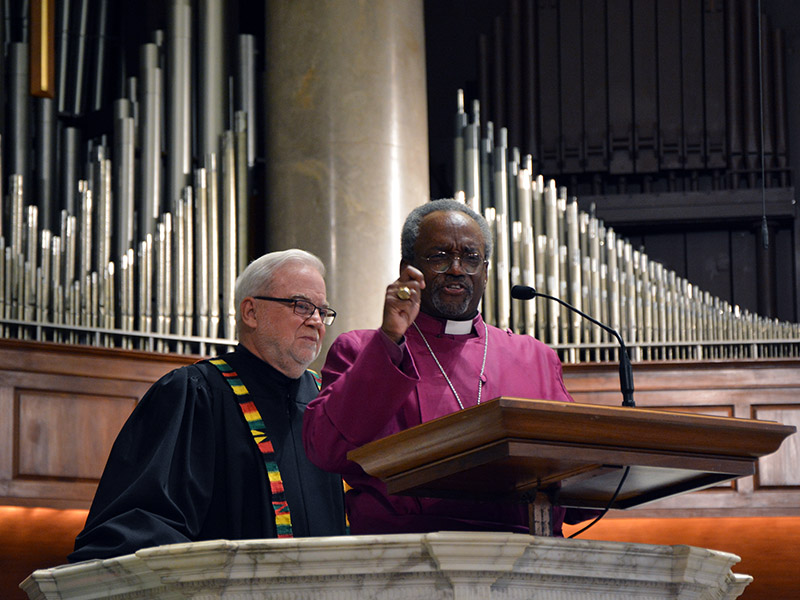Ah, celebrity! Thanks to his star turn preaching at the recent royal wedding, Michael Curry, Presiding Bishop of the Episcopal Church, has become the first Mainline Protestant leader in a generation to require criticism from the religious right.
So the other day, Robert Jeffress, pastor of First Baptist Church Dallas, went on Lou Dobbs to attack Curry for joining other Protestant leaders in promoting a “Reclaiming Jesus” proclamation that protests the policies of the Trump Administration towards the least among us.
“They’re sincere, but they’re sincerely wrong, Lou, about their understanding about what the Bible says about government,” said Jeffress. “Yes, we’re to do what the bishop says and follow the way of love—individually. We’re to love each other, forgive each other, turn the other cheek. But government is never commanded to do that in the Bible. Government is supposed to look out for the protection of its citizens.”
Actually, the Bible does pretty much command the way of love, at least when it comes to caring for the poor. In Leviticus 19:9-10, God ordains this social welfare policy:
When you reap the harvest of your land, do not reap to the very edges of your field or gather the gleanings of your harvest. Do not go over your vineyard a second time or pick up the grapes that have fallen. Leave them for the poor and the foreigner. I am the Lord your God.
This was not optional charity. This is a mandate to the people from what, in the original theocracy, was governmental authority.
Now Jeffress himself claims that only Old Testament rules that are repeated in the New Testament “apply to us today.” When it comes to government, the heart of New Testament teaching is Romans 13, where Paul insists on obedience to civil authorities, as divinely established.
A central function of the Roman government of the first century was the dole—providing free grain to the poor (hence Juvenal’s snide reference to “bread and circuses”). As much as the New Testament urges voluntary charity, it never levels criticism at that governmental function.
Indeed, after the Emperor Constantine, a Christian convert, came to power, one of the ways he enhanced the Church’s status was to give responsibility for the grain doles to the bishops. At that point, you might say, government social welfare policy and the Christian rule of love merged.
You might also say that it’s Jeffress, not Curry, who is sincerely wrong about his understanding about what the Bible says about government.






